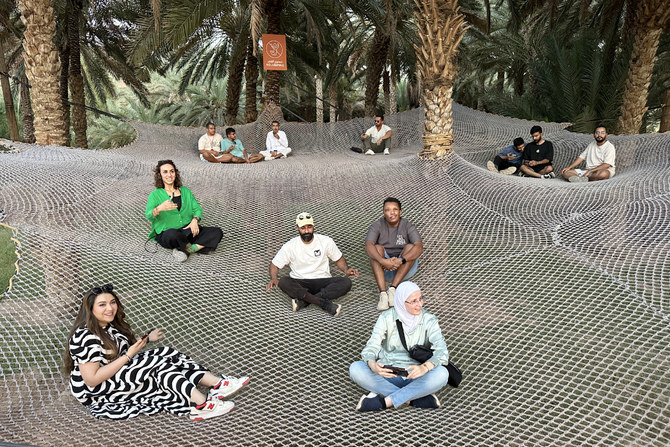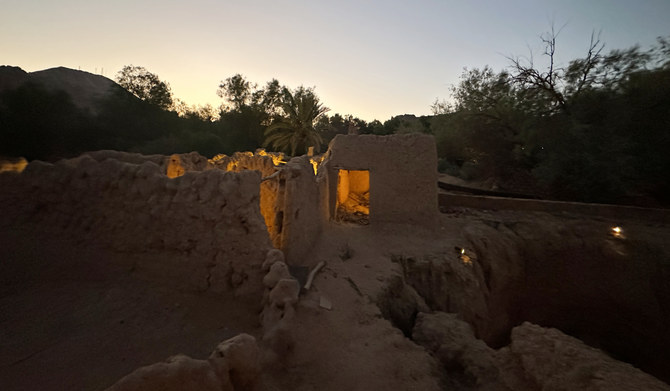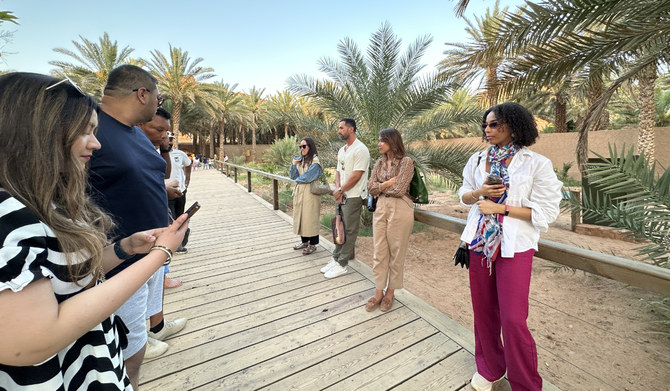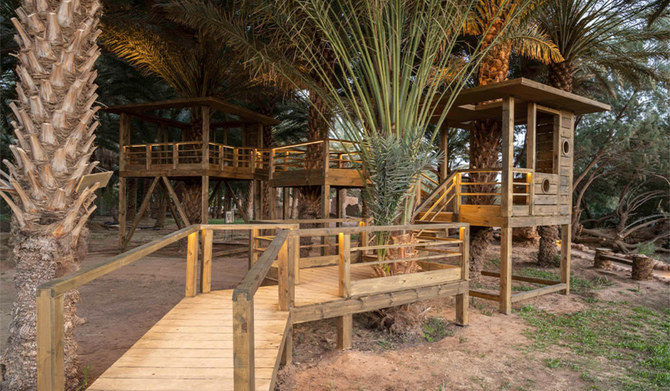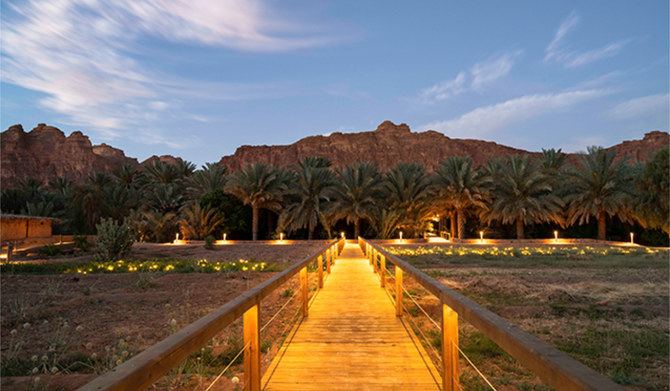JEDDAH: Modern-day tourists are being offered the chance to connect with the past at a sustainable farmland destination nestled within the Saudi desert.
AlUla’s latest attraction, Daimumah, from the Arabic word for sustainability, brings together art, nature, and heritage in a scenic oasis setting.
For centuries farming communities have shaped and nurtured the AlUla valley, leaving a fertile landscape for future generations.
As part of wider efforts to promote AlUla’s natural and cultural heritage, officials have been working for more than a year to develop Daimumah as a free-to-visit tourist destination.
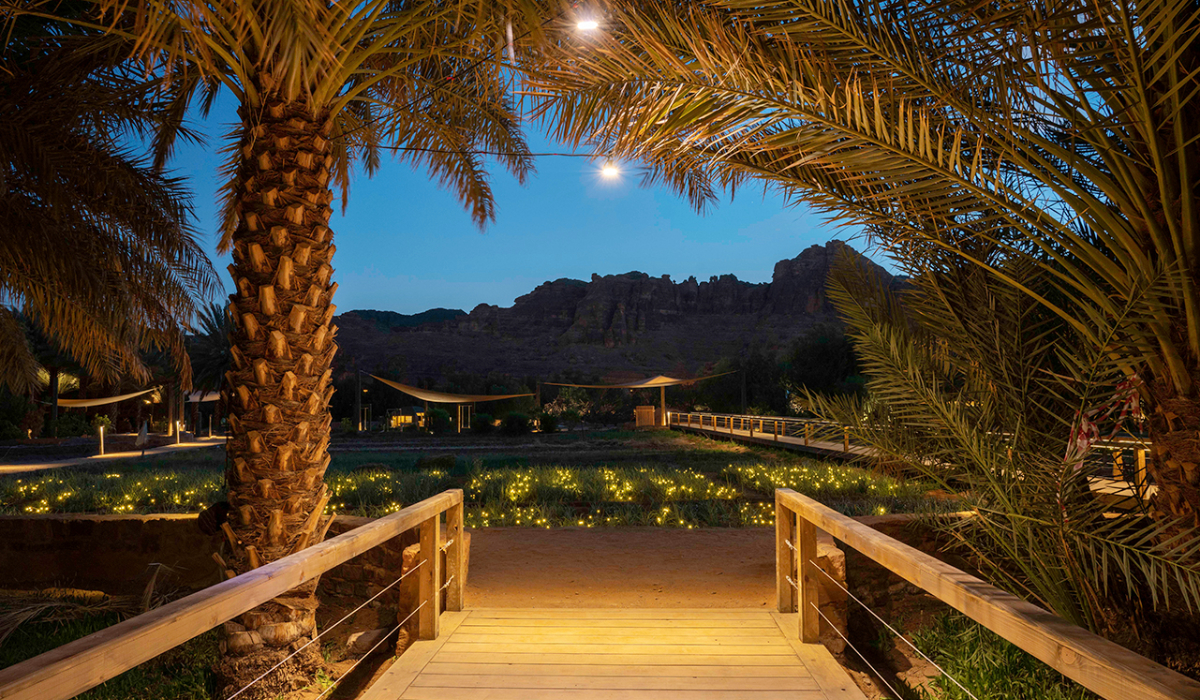
As part of wider efforts to promote AlUla’s natural and cultural heritage, officials have been working for more than a year to develop Daimumah as a free-to-visit tourist destination. (AN photo by Nada Hameed)
With its palm groves, botanical gardens, and fields, trippers can explore at their leisure, discovering art installations, old mudbrick farm dwellings, ancient irrigation channels, and crops still grown sustainably by local farmers.
Adel Al-Balawi, a Saudi tour guide at Daimumah, told Arab News that palm trees had always played a vital role in the civilization and dwellings of AlUla.
He said: “Serving as natural shields against the scorching sun, they provide shade and help regulate temperature by reducing it by 10 degrees compared to open areas.
HIGHLIGHTS
• AlUla’s latest attraction, Daimumah, from the Arabic word for sustainability, brings together art, nature, and heritage in a scenic oasis setting.
• For centuries farming communities have shaped and nurtured the AlUla valley, leaving a fertile landscape for future generations.
“Within the palm fields, farmers strategically plant delicate crops that are susceptible to heat, benefiting from an optimal balance of sunlight.
“The passing breeze through the palms further cools the air, safeguarding the fragile plants from excessive heat, fostering the growth of lush vegetation below,” he added.
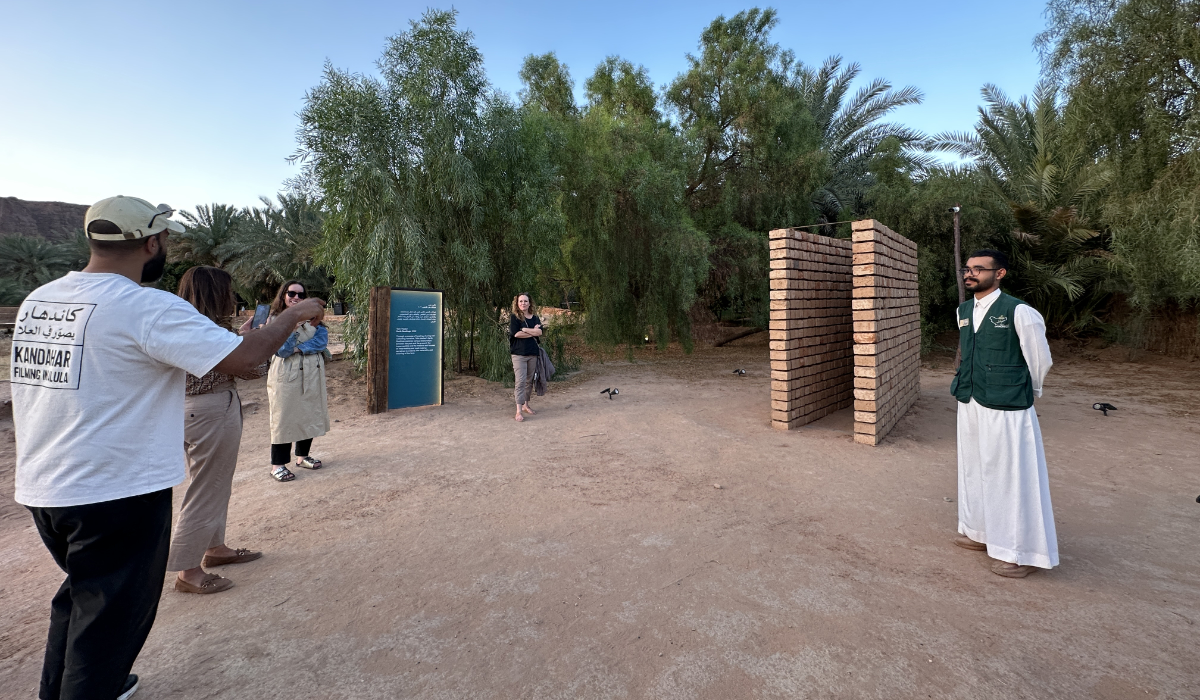
As part of wider efforts to promote AlUla’s natural and cultural heritage, officials have been working for more than a year to develop Daimumah as a free-to-visit tourist destination. (AN photo by Nada Hameed)
The installations scattered around the site were specially created by three artists and have been themed around the people of AlUla and the folklore dances of Saudi weddings.
In the Explorers’ Garden visitors can relax in a giant net strung between the palm trees and connect with nature by listening to the gentle rustle of the palm fronds and the soft chirping of birds as cool breezes create a calming ambience.
Al-Balawi said: “The net, expertly crafted from durable yet gentle materials, stretches out, inviting visitors to lay down and immerse themselves in its cradling embrace.
“Its intricate design allows for a comfortable and secure lounging experience, providing the perfect vantage point to admire the breathtaking surroundings.”
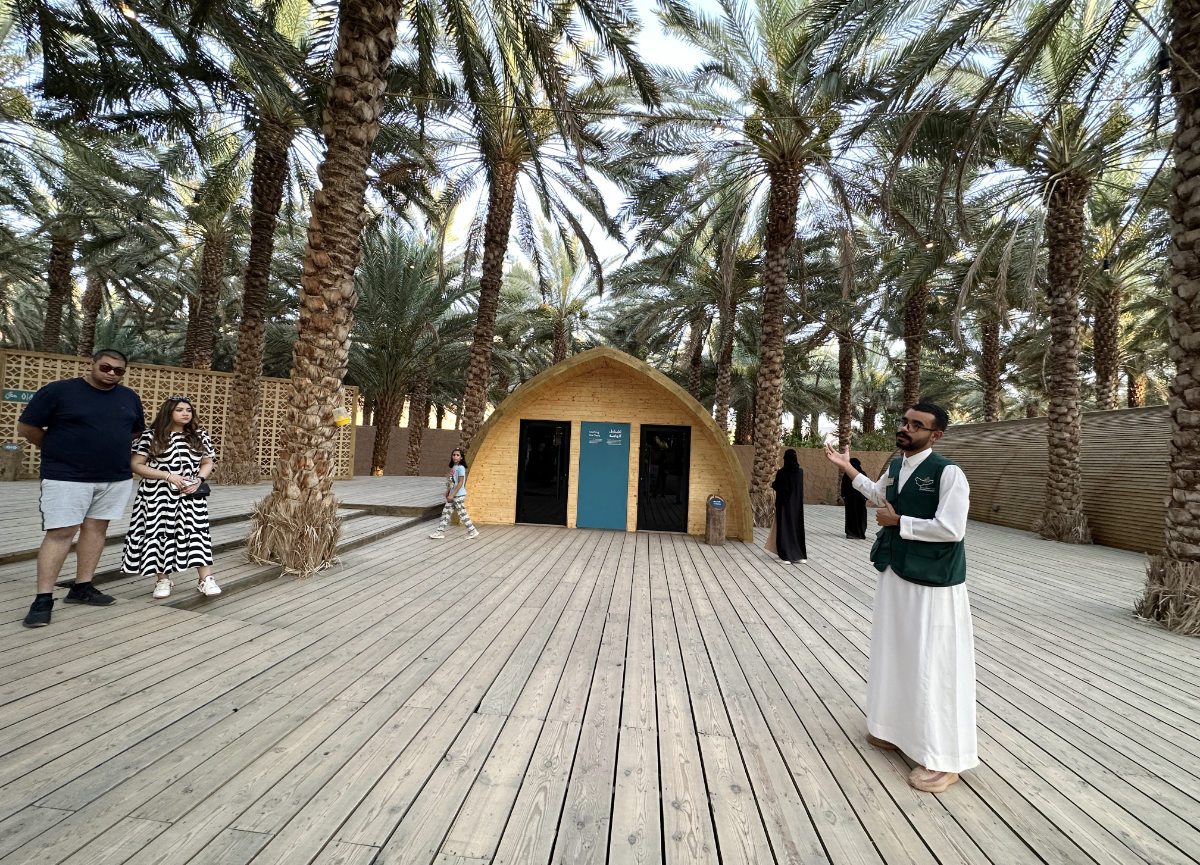
Adel Al-Balawi explains to visitors about Daimumah. (AN photo by Nada Hameed)
Daimumah uses solar panels to generate electricity for all its facilities. “It is the sure and best solution to reduce carbon footprints,” Al-Balawi added.
One visitor, Munirah Al-Enizi, 15, from AlUla, said: “I am so glad that the oasis has a tree house. It is inspired by palm trees which represent our Saudi culture too. It’s a great way to connect with nature and appreciate the beauty of the rural environment.”
The palm house has been made entirely from palm tree wood and has a wooden staircase that leads to an attic. At its center is a majestic palm tree with branches full of green dates waiting to be picked in August.
On Daimumah’s historic farm dwellings and water systems, Al-Balawi pointed out that the people of AlUla used to use a series of canals to link farms in the oasis. Water flows were controlled by a skilled farmer known as the master.
“It’s proof of the deep-rooted traditions and community spirit that make AlUla’s irrigation system not just ancient, but truly remarkable,” he said.
Daimumah blends traditional farming practices with modern innovative practices to produce a variety of crops including eggplant, onions, bell peppers, lemons, oranges, and an assortment of herbs.
A greenhouse area offers visitors the chance to find out how exotic fruits are grown while saving water and space.
“In Daimumah, farmers cultivate an environment that is tailor-made for specific crops. Within these reserves, an impressive count of 10,000 strawberry seedlings flourishes, enabling farmers to successfully grow exotic fruits that would otherwise struggle to thrive,” Al-Balawi added.
Between December to March, visitors can tour the site’s strawberry reserves and handpick the berries.
Moringa trees also flourish in the oasis. Al-Balawi said: “They require very little water to grow and are therefore considered a resource-efficient crop that is incredibly versatile and can be made into many different products.”
An open-air eatery, wood-cabin cafe serving hot and cold refreshments and snacks, and souvenirs shops are also located on the site.
In addition, educational and entertainment workshop programs are organized by the Royal Commission for AlUla.
For more information visit: https://www.experiencealula.com/en


